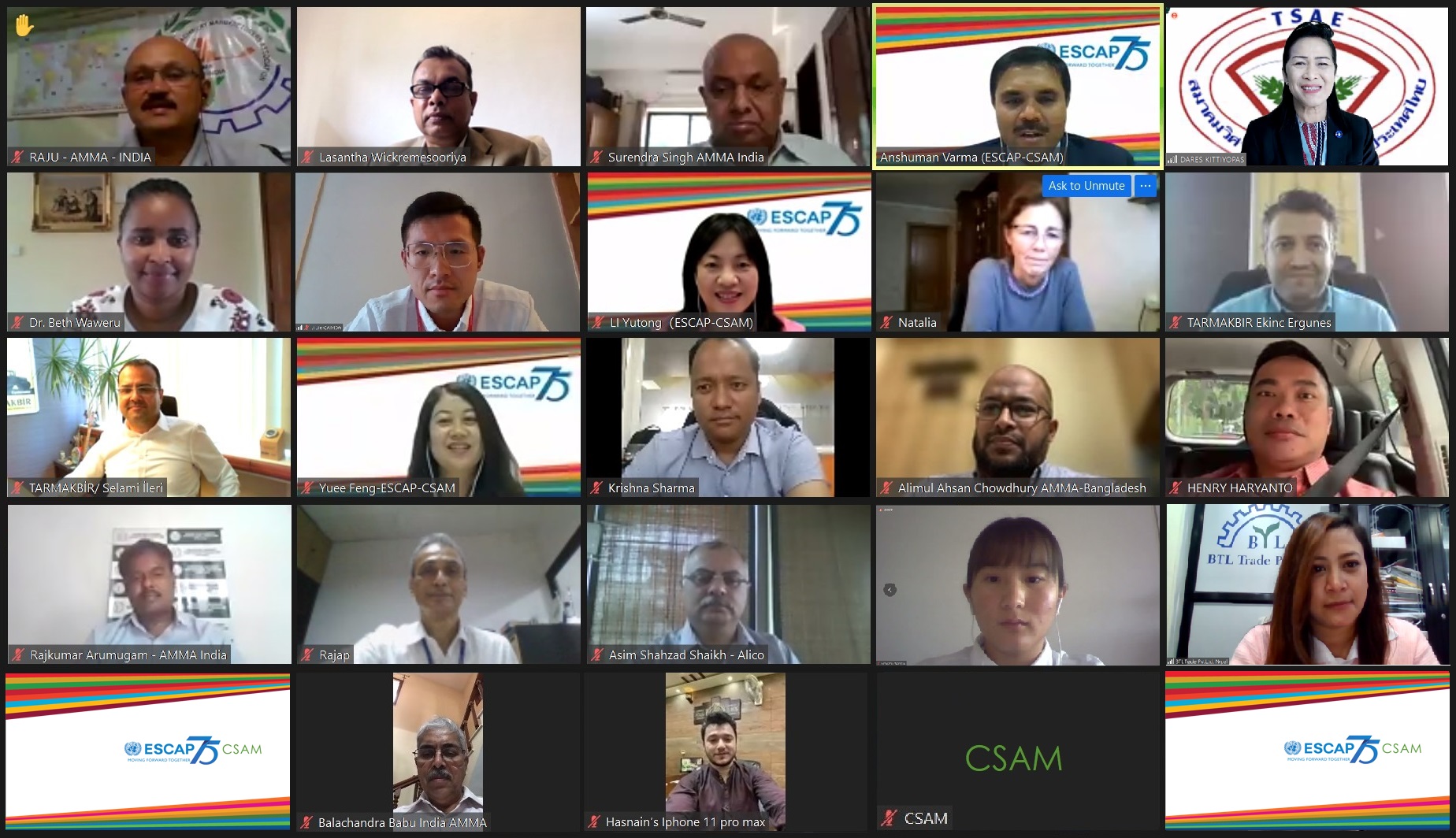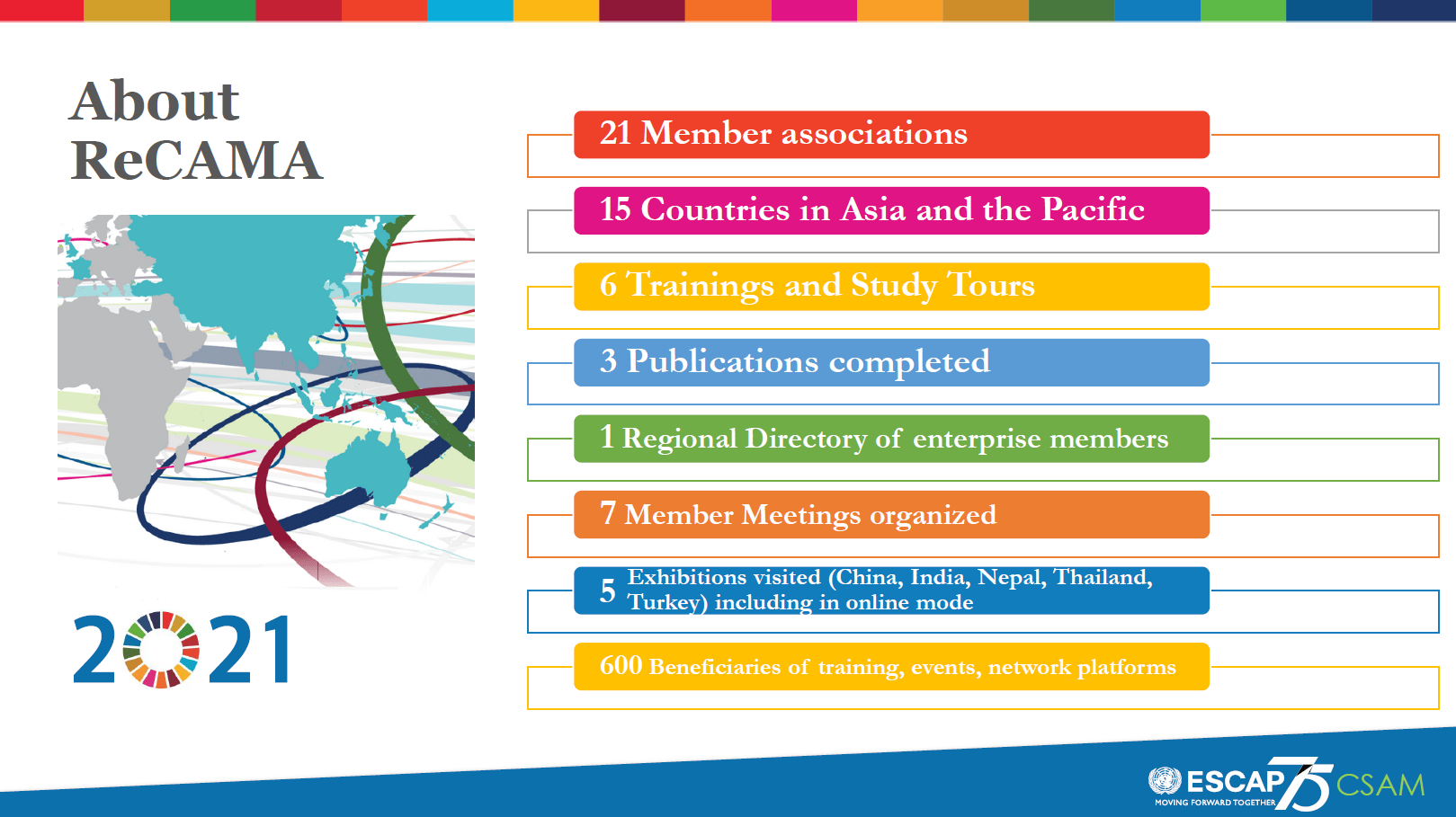CSAM Strengthens Regional Network During 7th Member Meeting of ReCAMA

Meeting Documents
The 7th Member Meeting of the Regional Council of Agricultural Machinery Associations in Asia and the Pacific (or ReCAMA) was held virtually on 27 Oct. 2021.
The Member Meeting this year put the spotlight on the Corporate Social Responsibility (or CSR) efforts of ReCAMA’s member associations and enterprises, particularly in the areas of poverty alleviation, supporting smallholder farmers, and empowering women and marginalized groups. Representatives from China, India and Nepal shared their good cases and practices in CSR. The Meeting thus provided a platform to showcase the CSR initiatives of the ReCAMA network enabling better visibility for these initiatives and fruitful synergies. Dr. Beth Waweru, Advisor on Public Private Partnership at the Office of the United Nations Resident Coordinator in China, further enriched the discussions by providing an overview of the main principles of CSR.
The 7th Member Meeting also elected the Thai Society of Agricultural Engineering (TSAE) as the new Chair association and the Turkish Association of Agricultural Machinery & Equipment Manufacturers (TARMAKBiR) as the new Vice Chair association of the network who will serve for the 2021-2022 term. In accordance with ReCAMA’s participatory and network-driven approach, the Member Meeting discussed and endorsed the work report of ReCAMA for 2021 and the work plan for 2022.
ReCAMA is a flagship initiative of CSAM with the aim to promote sustainable agricultural mechanization in the Asia-Pacific region through strengthening the capacity of national agricultural machinery associations, facilitating the exchange of knowledge and information, and enhancing collaboration and closer business connections among national associations and their members. As of date, ReCAMA has 21 member associations from 15 countries.
ReCAMA has previously been cited by the United Nations Office for South South Cooperation as a good practice in the third volume of its global publication titled ‘Good Practices in South-South and Triangular Cooperation for Sustainable Development’ in September 2020.

